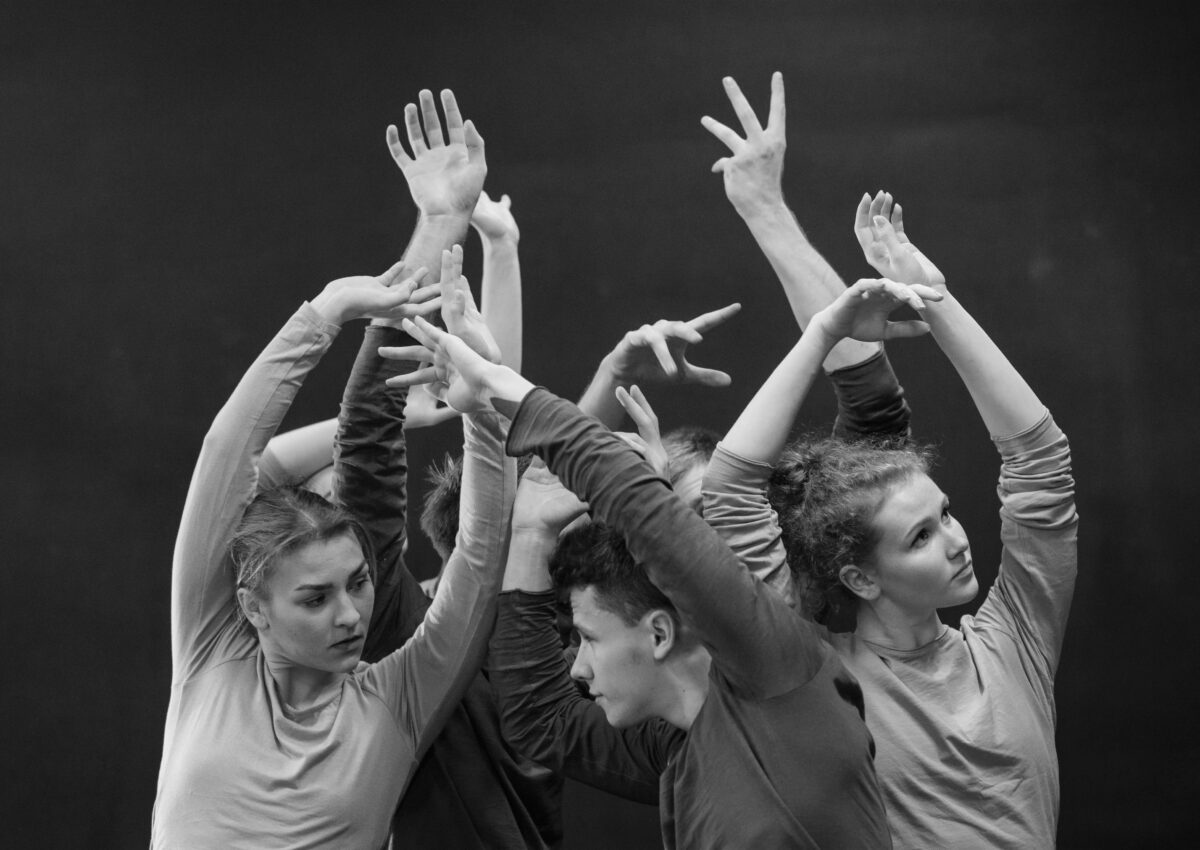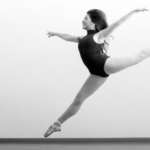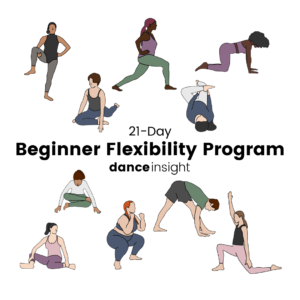
What’s the hardest part about being a dance professional? I believe it’s continuing to have as much dance in your life as you did when you were a full-time student. Sure, you perform in shows, you choreograph for your students, you take the occasional drop-in class that your friend drags you to, but it’s nothing compared to the 4+ hours a day that you trained back then.
And that’s okay. You’re not a student anymore, you’re a pro. You get to spend those hours rehearsing, performing, choreographing, and teaching. Some of those hours still have to be class, though, if you want to be successful as a dance professional.
In fact, I have 8 reasons why you should continue to take class as a pro, some of which you may not have thought of before!
Notice that I’m using the term “dance professional” rather than “professional dancer.” That’s because I think it’s just as important for teachers, choreographers, even studio owners, to take class as it is for performers.
1. Continue Learning New Skills
Finishing your formal education and becoming a professional doesn’t mean you’ve learned all there is to know about dance! Taking class can help you add to your repertoire and improve current skills. This will make you a more marketable performer and a more knowledgeable teacher!
2. Gain Inspiration for Your Own Classes
I always find that I’m a better teacher when I’m actively taking class from other instructors. Without a constant influx of new ideas, your combinations and lessons will get stale. I don’t mean that you should copy other teachers intentionally. Simply seeing how others approach class and learning others’ choreography should be enough inspiration to keep your classes fresh!
3. Maintain Your Technique
If you’ve ever taken any time off of dance, whether due to an injury, time between gigs, or a global pandemic, you probably know how quickly the finer points of technique leave your muscle memory. While rest is important, it’s vital to your career that you don’t go too long without taking class. As the old saying goes, “If you don’t dance for one day, you know it. If you don’t dance for two days, your teacher knows it. If you don’t dance for three days, the audience knows it.”
(I personally think this saying sets an unreasonable standard, especially for working adults, and maybe it should be changed to “one week, two weeks, three weeks.” But you get the idea!)
What about while you’re on a gig? It might be hard to take class while you’re on a gig depending on the time commitment and location. However, you should still try to keep up a dance practice outside of your performing work. After all, you need to maintain your technique on all the skills that aren’t in your show. So whether that means taking a virtual class, working out, or practicing dance at home, find a way to keep taking class while you’re on a gig!
4. Network with Your Local Dance Community
You’ve heard it said a hundred times: networking is the key to success in the performing arts industry! That’s true whether you’re a performer, teacher, choreographer, or studio owner. Taking class is a great way to connect with your local dance community.
Look for local companies that offer open drop-in classes to the community, as well as individual teachers who might offer pop-up classes when they’re in town. Try to follow the teacher on social media after class, as well as any fellow students you chatted with.
5. Get Jobs
Sometimes taking class doesn’t just help you make connections, it helps you get jobs! I’ve been to several auditions for professional modern dance companies where they used their regular weekly drop-in class as the audition. Invariably, the people they chose to join the company were those who had been taking that drop-in class all along. So there you have it, the best way to get in with a company you like is to take their drop-in classes!
If you live in a big city with lots of professional opportunities, you can also get spotted by talent scouts at drop-in classes. I’ve seen casting agencies announce that they’ll be observing specific classes at drop-in studios such as Broadway Dance Center. And even if it’s not a talent scout, the teacher or someone else in class might be casting a show that you don’t know about.
Treat every class like an audition, always having a professional attitude and displaying a good work ethic. You never know who’s watching!
6. Branch Out and Try New Styles
Today’s professional dance industry requires performers to be extremely versatile. You need to be well-versed in ballet, contemporary, jazz, hip hop, latin dance styles, tap, and partnering. Not to mention specialty styles such as acrobatics that can give you an edge in the audition room. If there are any styles of dance that you need extra work on, make sure to be taking those classes!
Learning new styles is useful for teachers as well. Even if you never plan to teach those styles, there’s a lot of value in going through the process of being a beginner at something. Observe how the teachers instruct you and how your body picks up each new movement. It might give you new insight to incorporate into your own teaching.
7. Stay in Shape
A wise piece of advice I once received from the amazing Jennifer Jancuska was, “Your show should not be your workout.” I think she meant two things by that.
- A lot of people, when they’re on a gig, won’t maintain their practice of working out, running, whatever they do in the off-seasons. Their reasoning: “I get a good enough workout just from doing the show, so I don’t need to do a separate workout.” However, this throws a wrench in the habits that you worked so hard to develop, and will make it harder to go back to your off-season routine when the show is over.
- If your show feels like a gruelling, strenuous workout for you, then you’re not really operating at peak performance. External factors like weather and injuries aside, your show shouldn’t take every ounce of strength you have. It’s not healthy to push yourself that much every day. By working out in addition to your performances, you can build the strength and stamina necessary to do your show without it killing you.
8. Keep Your Love of Dance Alive
Before you ever set foot on a stage, before you ever dreamed of making a living from it, you fell in love with dance in the classroom. If you spend too much time doing “dance as work,” you can lose sight of why you do it in the first place. Taking class regularly can bring back the joy and remind you that dance can be fun too!







